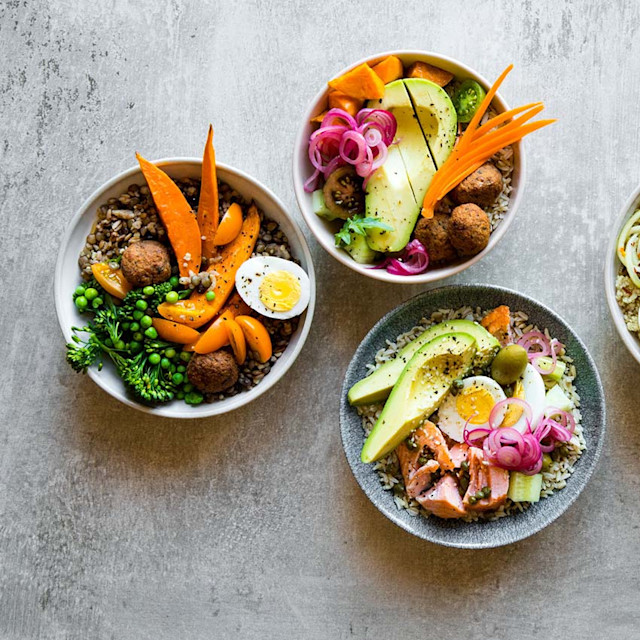A nutrition expert’s journey from obesity
Dominic Matteo is a level 2 masterclass instructor at Precision Nutrition in Cleveland. In 2009, Matteo found himself morbidly obese at 300 pounds with 36 percent body fat. That year, on the same day, he learned that his wife was pregnant and that a close friend had passed away. He had also recently been diagnosed with metabolic syndrome and exercise-induced asthma. Matteo knew he was ready for a change. After using the Precision Nutrition system, he lost over 120 pounds. He spoke to Furthermore about the impact of carbohydrates and food consistency in particular on his well-being.
When I began transforming my body, I ate plenty of veggies and would eat just one serving of fruit or starchy carbs a day.
There I was, on this lower-carb diet, which I couldn’t maintain. I’d eat some pizza or cereal and notice my weight immediately shoot up for the next two to three days. ‘See? Carbs make me fat,’ I’d tell myself. Then, I’d go back to restricting and see the weight fall back off.
Here’s what was actually happening: On a carb-restricted diet, your muscles shed glycogen, which is essentially sugar and water. You see pretty quick weight loss. But, make no mistake, that’s not fat—it’s liquid, or intracellular volume also known as water weight. Deviate from that diet and put carbs back in randomly, you’ll bring water back into your body. As glycogen stores fill back up, you can put on five or six pounds in a day. In fact, I’ve seen some clients put on 10 pounds in a day.
The more I studied and learned, the more I realized that the weight bump was not because the carbs made me fat. It was because I had one-off added something I didn't normally eat, and when I added it, it was typically something highly processed. Healthy carbs on the other hand (like sweet potatoes, potatoes, and beans) can actually provide more energy for your workouts, help with satiety and fullness, and even be a boon to weight loss in the long run.
Eventually, I started to add more and more carbs into my diet. I noticed that the huge weight jump began to level out, and I continued to move toward my goals and get leaner.
Fast forward to today, and I eat two to three servings of carbs at just about every meal with zero issue. Each meal is generally comprised of two palm-sized servings of lean protein, two cupped handfuls of carb-dense foods, two or more fists of vegetables, and two thumb-sized servings of fat. Of course, the right amount for you will depend on your body’s needs and activity levels.
It’s not necessarily a carb phenomenon either. Bloating and water retention can happen any time you deviate from your diet. What it comes down to is that a large swing in eating patterns is a stress to your body, just like if you were to seriously short yourself [on] sleep one night.
One thing I always tell my clients is that the scale is not a great tool for understanding whether or not you’re actually changing your body composition or losing fat. Scale weight is a reflection of stress—stress from changing up food intake, exercise, or sleeping patterns. The scale will fluctuate day-to-day or hour-to-hour. If you absolutely need to weigh yourself daily, average your weight for the week and compare yourself week-to-week. It helps smooth out the bumps (rather than simply watching water weight increase and decrease) and gives you a real picture of if your lifestyle habits (including diet) are producing the results you want.
The bottom line: A diet where you cut out entire food groups (especially carbs) will deliver immediate results. You might think ‘oh, this is what works,’ but really, the only thing that truly matters in terms of body composition, weight, or health is consistency over time. Develop a well-balanced eating plan that features better choices the majority of the time, while having self-compassion and zero guilt when you make lesser-quality choices. This kind of approach will be sustainable for a long time.
